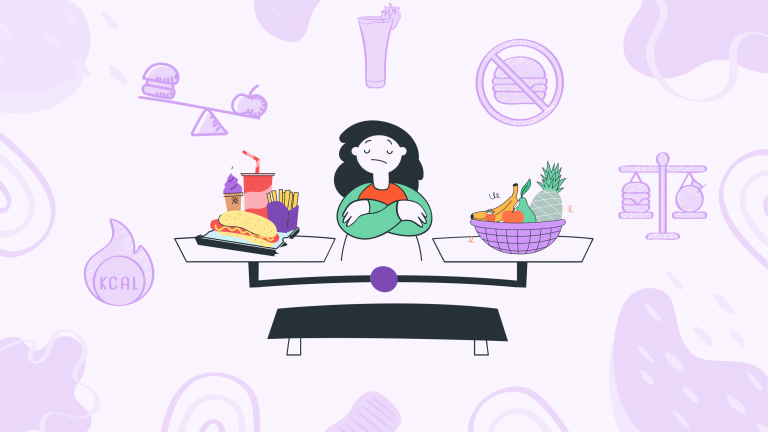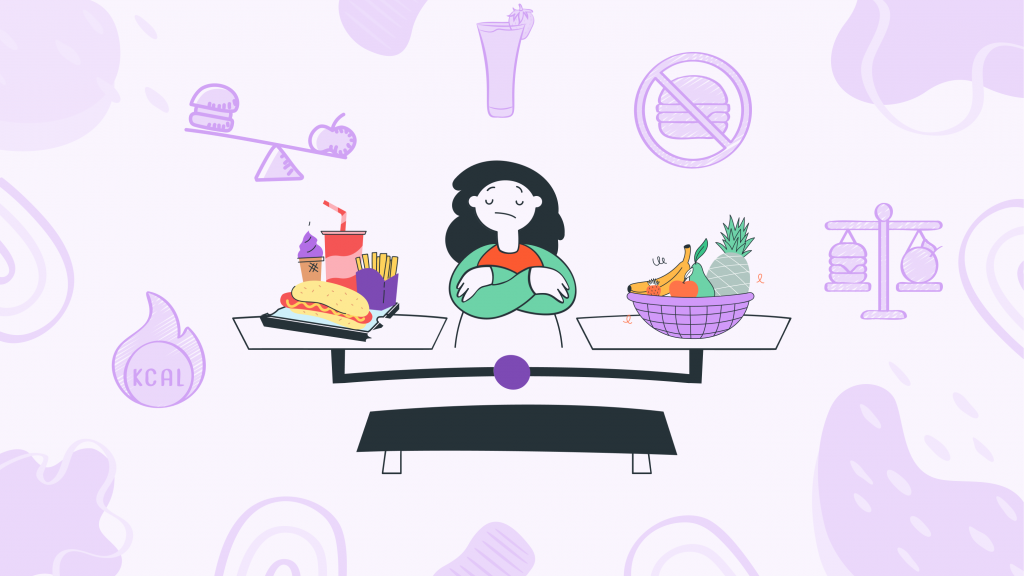The Daily Dietary Struggle
Let’s face it, trying to eat a balanced diet in this non-stop, hustle-bustle world feels like a Herculean task sometimes, doesn’t it? We’re all racing against the clock, juggling a million things, and when hunger strikes, the siren call of a quick bite often wins over the slow dance of chopping, stirring, and cooking a nutritious meal. Fast food joints, those ready-to-go meals, and tempting snack aisles shout out convenience and taste, making it super easy to fall into the trap of eating something that hits the spot now but leaves our nutritional needs in the dust.
And hey, it’s not just about picking this food over that. It’s a whole juggling act – trying to fit meal prep into our chaotic schedules, sorting out what’s really important in the grand scheme of things, and dodging the relentless bombardment of ads promising us the moon if we just take a bite of their latest, greatest food craze. It’s like navigating a minefield of dietary do’s and don’ts, where the easier options often lead us away from the balanced path.
The Science of Balanced Diet
Our journey through the landscape of nutrition is not just a tale of choices and willpower; it’s deeply rooted in the biological and neurochemical wiring of our bodies and brains. We’re descendants of ancestors who thrived on high-calorie, nutrient-rich diets, a necessary adaptation in an era where food was not a given but a prize won with effort and luck. This evolutionary trait, which once played a crucial role in human survival, has a peculiar twist in our modern world of plenty.
Today, the aisles of supermarkets are laden with foods that hit the jackpot in terms of calories but often fall short on the nutritional spectrum. When we indulge in these high-sugar and high-fat delights, our brain lights up like a fireworks display, releasing dopamine, known as the “feel-good” neurotransmitter. This dopamine rush brings a wave of pleasure, reinforcing our desire for these foods, despite their limited nutritional value. It’s a classic case of our ancient instincts colliding with contemporary abundance, leading to a dietary imbalance.
But the plot thickens when we add modern lifestyle factors into the mix. The stress of daily life and the epidemic of sleep deprivation serve as catalysts, intensifying our cravings for these quick-fix foods. Under stress, our body craves energy-dense foods to fuel what it perceives as a fight-or-flight scenario, while sleep deprivation muddles our brain’s judgment and impulse control, making that greasy slice of pizza look like a knight in shining armor.
Moreover, the neurochemical dance doesn’t stop with dopamine. Other players like serotonin, the mood regulator, can also influence our dietary choices. Low serotonin levels, which are common in stressful and sleep-deprived states, can increase cravings for carbs and sugary foods, as these foods temporarily boost serotonin production and make us feel better.
In this intricate ballet of evolutionary biology, neurochemistry, and modern lifestyle, maintaining a balanced diet becomes a complex challenge. Our primal instincts and neurochemical responses, combined with today’s stress and sleep patterns, often lead us away from the balanced, nutrient-rich diet that our bodies need.
Subscribe to newsletter
Get your Gut Health Starter Guide right now.
Elevate your Tuesdays with practical, science-backed wisdom propelling you forward on your gut health journey.

Path to Nutritional Nirvana
Achieving dietary balance is not about perfection or strict adherence to diet plans but finding a sustainable middle ground. Here’s how:
- Mindful Eating: Become aware of what you eat and why. Listen to your body’s hunger cues and differentiate between actual hunger and emotional or stress-induced eating.
- Preparation is Key: Plan and prepare meals ahead of time. Batch cooking and keeping healthy snacks on hand can prevent last-minute reliance on fast food.
- Variety is the Spice of Life: Include a wide range of foods in your diet to ensure you get all necessary nutrients. Aim for colorful plates filled with different fruits, vegetables, proteins, and whole grains.
- Educate Yourself: Understand the basics of nutrition to make informed choices. Knowing which foods provide the nutrients you need can help you balance your diet.
- Hydration: Keep a water bottle handy and sip throughout the day. Staying well-hydrated helps manage hunger and maintain energy levels.
- Moderation, Not Deprivation: Enjoy your favorite treats in moderation. A balanced diet includes occasional indulgences, so savor them without guilt.
- Physical Activity: Incorporate regular exercise, which can positively influence your food choices and help maintain a balanced diet.
A Dietary Journey Unveiled
Emma, a busy software engineer, shares her tale of transitioning to a balanced diet. “My life was a cycle of coffee, takeout, and late-night coding. I rarely ate a meal that didn’t come in a disposable package,” she recounts. The turning point came during a routine health check-up when she realized the toll her eating habits had taken on her well-being.
“I started small, swapping my morning pastry for a fruit and yogurt parfait and bringing home-cooked lunches to work,” Emma explains. Educating herself on nutrition helped her understand the value of each food group and how they affected her energy levels and mood.
“Gradually, I felt more energetic, my sleep improved, and I even found joy in cooking. It became a creative outlet rather than a chore,” she reflects. Emma’s story exemplifies that while the journey to a balanced diet requires effort and adaptation, the benefits to health and happiness are profound.
Emma’s narrative is a testament to the positive changes that can arise from overcoming the common struggles of maintaining a balanced diet. Her experience underscores that with mindfulness, preparation, and a willingness to learn, anyone can navigate the nutritional tightrope to achieve a healthier, more fulfilling lifestyle.


















